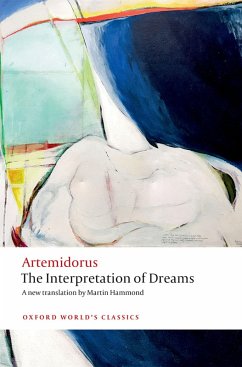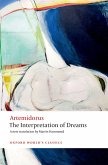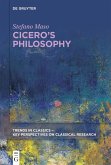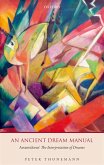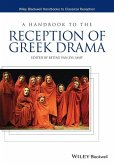'Dreams are products of the mind, and do not come from any external source' Artemidorus' The Interpretation of Dreams (Oneirocritica) is the richest and most vivid pre-Freudian account of dream interpretation, and the only dream-book to have survived complete from Graeco-Roman times. Written in Greek around AD 200, when dreams were believed by many to offer insight into future events, the work is a compendium of interpretations of dreams on a wide range of subjects relating to the natural, human, and divine worlds. It includes the meanings of dreams about the body, sex, eating and drinking, dress, the weather, animals, the gods, and much else. Artemidorus' technique of dream interpretation stresses the need to know the background of the dreamer, such as occupation, health, status, habits, and age, and the work is a fascinating social history, revealing much about ancient life, culture, and beliefs, and attitudes to the dominant power of Imperial Rome. Martin Hammond's fine translation is accompanied by a lucid introduction and explanatory notes by Peter Thonemann, which assist the reader in understanding this important work, which was an influence on both Sigmund Freud and Michel Foucault.
Dieser Download kann aus rechtlichen Gründen nur mit Rechnungsadresse in A, B, BG, CY, CZ, D, DK, EW, E, FIN, F, GR, HR, H, IRL, I, LT, L, LR, M, NL, PL, P, R, S, SLO, SK ausgeliefert werden.

